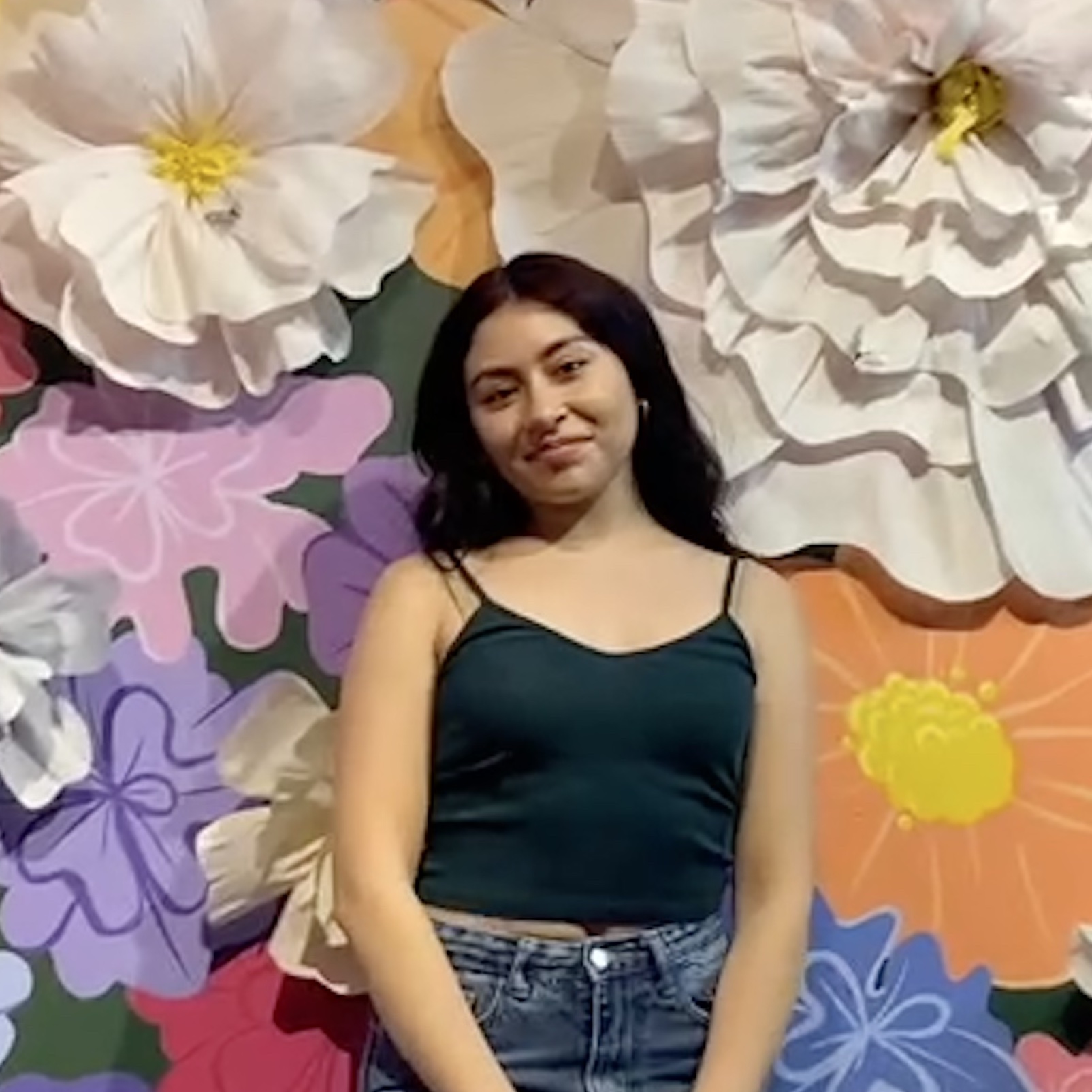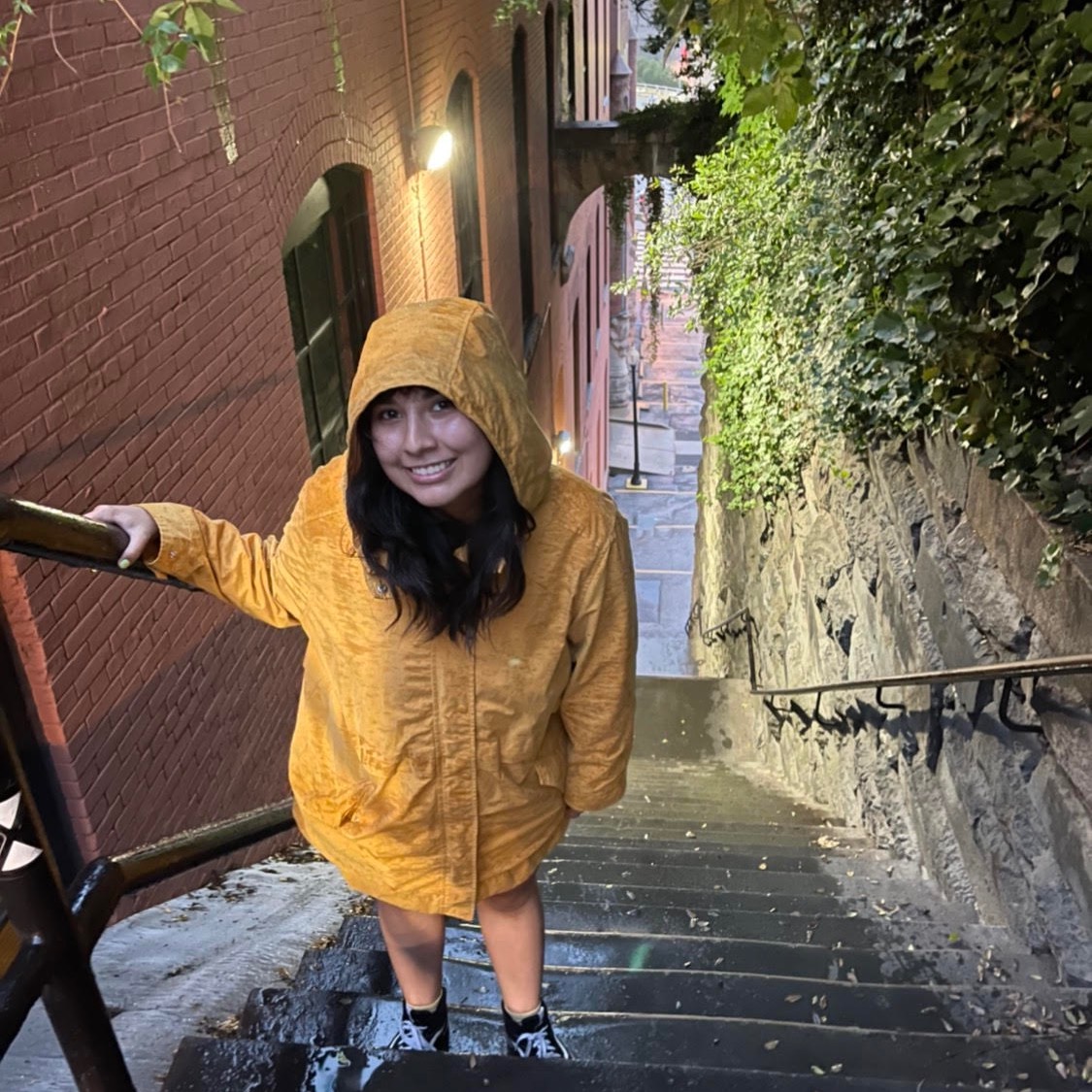
The Natural Hazards Center (NHC) is pleased to recognize two undergraduate research assistants: Jezebelle ("Jezzy”) Medina and Amanda Ruybal. Medina and Ruybal have worked with NHC graduate research assistant, Melissa Villarreal, on her National Science Foundation and American Sociological Association-funded research project, “Documenting the Undocumented: How Mexican Immigrant Women Navigate Long-Term Post-Disaster Housing Recovery and Cumulative Disaster Impacts.”
“It has been such a pleasure to work with Jezzy and Amanda,” said Villarreal. “I benefited greatly from the research opportunities and mentoring I received as an undergraduate student. It’s been so fulfilling to pay it forward, and Jezzy and Amanda have both shown incredible work ethic and promise in research.”

Jezebelle (Jezzy) Medina is a fourth-year student pursuing a Sociology degree at CU Boulder. She expects to graduate in spring of 2023. Her research interests include immigration and law. Medina is also a Student Ambassador at CU, and Vice President of CU’s Legislative Council. Medina worked on the project from fall 2021 to spring 2022. She contributed to the project by helping to transcribe Spanish interviews and contributing to preliminary analysis and the development of a codebook.
The opportunity to host Medina was made possible through funding from the American Sociological Association’s Doctoral Dissertation Research Improvement Grant that Villarreal was awarded in April 2021.

Amanda Ruybal is in her fourth year as an undergraduate at CU Boulder. Ruybal is pursuing a double major in Political Science and International Affairs and expects to graduate in the spring of 2023. She is interested in a wide range of topics, including, but not limited to, educational rights and funding, social and environmental justice, rural and agricultural issues, and political behavior. Ruybal is also the events coordinator for CU’s Model United Nations club and a Political Science Honors program member. Ruybal has contributed to Villarreal’s research by helping to transcribe English interviews and analyzing data and developing a codebook. She will be assisting with the analysis of U.S. federal, state, and local disaster recovery policy documents in spring of 2023.
The opportunity to host Ruybal for spring and summer 2022 was made possible through the Institute of Behavioral Science Undergraduate Research Experience for Diversity (UREDI) Program. The purpose of the UREDI program was to support undergraduate research and experiential learning, with training and mentoring aimed specifically for BIPOC, women, queer, first-generation, or other students from historically-marginalized groups under-represented in social and behavioral science.
The opportunity for Ruybal to continue her work on the project for fall 2022 through spring 2023 was made possible through the STUDIO Lab at the CU Boulder. The STUDIO Lab provides training for undergraduate students in social science research.
Both students were mentored extensively by Villarreal. To launch their experiences, they were required to complete CITI training to learn about human subjects research and the proper protocols for handling sensitive data. In addition, both students took CONVERGE Training Modules, including Broader Ethical Considerations for Hazards and Disaster Researchers, Institutional Review Board (IRB) Procedures, and Social Vulnerability and Disasters.
“It was wonderful to get the opportunity to teach two young Latina students new to qualitative research about the research process and to see them grow as researchers in their own right,” said Villarreal. “It was especially meaningful to listen to the methodological questions they asked. My hope is that this research experience inspires them to go to graduate school and contribute their own sociological ideas to the field of hazards and disasters. As two young Latina women, their perspectives are so important, and still underrepresented, in our field.”


This material is based upon work supported by the National Science Foundation Graduate Research Fellowship Program under Grant No. (NSF #DGE 1650115). This research has also been supported by the American Sociological Association Doctoral Dissertation Research Improvement Grant (ASA DDRIG) and CU Boulder’s Center to Advance Research and Teaching in the Social Sciences (CARTSS) Graduate Student Award, Beverly Sears Graduate Student Grant, and Sociology’s Racial/Ethnic Inequality Research Award and Betsy Moen Walk the Talk Award.